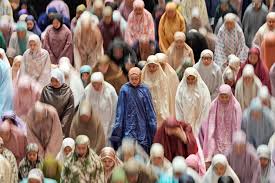
SAUDI AUTHORITIES BLAME HEAT, UNAUTHORISED TRIPS AS HAJJ DEATHS REACH 1,300
Saudi Arabia’s official death toll from this year’s Hajj exercise has reached 1,301, with extreme heat and unauthorised trips cited as major contributing factors.
The Saudi government released a statement acknowledging “numerous cases” of heat stress and highlighting that 83% of the deceased were “unauthorized to perform Hajj.” The affected pilgrims, the statement claimed, “walked long distances under direct sunlight, without adequate shelter or comfort.”
Two Kwara Pilgrims Die In Saudi Arabia, Board Mourns
The scorching temperatures in Mecca, with highs exceeding 125 degrees Fahrenheit, have been a major concern throughout the pilgrimage. Witnesses reported pilgrims collapsing from heat exhaustion and bodies covered in white cloth lining walkways.
Adding to the dangers, Saudi Arabia pointed to a surge in unauthorised pilgrimages. Hajj permits are allocated by country quota and require a license for legal entry to Mecca. These licences, however, can cost several thousand dollars, leading some pilgrims to seek alternative, often dangerous routes.
Egyptian authorities recently revoked licences of 16 tourism companies accuced of facilitating illegal trips. Reports suggest hundreds of Egyptians may be among the deceased, far exceeding the official toll of 31. The companies, according to the Egyptian government, failed to provide proper visas, forcing pilgrims onto treacherous desert paths and leaving them exposed to the brutal heat.Beyond the immediate tragedy, the disaster has sparked renewed calls for improved infrastructure and better organisation of the annual Hajj. Critics point out that even with official permits, pilgrims still spend a significant amount of time outdoors under the scorching sun.
 Premium News
Premium News